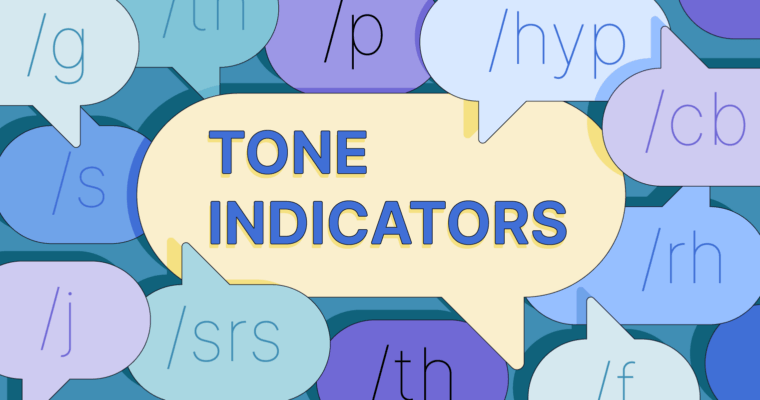
I’ve written things on the Internet for a minute–between six and eight years, depending on how you count.
In that time, I’ve seen many people online shamed for being “bad writers.” From outright trolling to well-meaning “grammar policing,” it seems that every egg on Twitter has thoughts on others’ writing mechanics, tone, or delivery.
But I don’t think “good” and “bad” writers exist. There are simply writers. Some improve their writing. Some don’t.
A small group of these writers delight their readers with a well-turned phrase or clearly-structured argument. Others confuse their readers with hedging language or repeated eggcorns. Either way, we’re all writers, and there is no grammatical or stylistic mistake that can strip us of that distinction.
Good writing is a journey, not a destination
So what is good writing? There is no single definition—but I know it when I see it.
Improving your writing is a lifelong process of learning, self-discovery, and editing. Lots of editing.
One of the qualities of good writers is the ability (and humility) to edit their own work. Your writing may be pretty good on the first draft, but knowing that it can always improve is what makes it great. We’re all on a journey to find the perfect sentence construction, word, and tone for the things we write, and I don’t believe we’ll ever get there. So enjoy the journey of honing your writing style, because you’ll never hit a point where it’s perfect. That point just doesn’t exist.
Having said that, there are a few best practices you can adopt to elevate your writing, from mechanics to delivery.
1 Practice writing and ask for feedback
The best advice I can give to new writers is to start writing. If you’re not practicing the writing you’d like to master regularly, completing your ultimate task will be much more difficult. That’s true whether you’re writing an essay, an email, a blog post, an Instagram caption, or a 400-page novel.
Some writing experts recommend writing every day, and this has been helpful for me in the past. But even if you don’t have time to write your daily 500 words or fifteen15 minutes, getting a regular cadence of writing started is key to developing your skills.
One element of this discussion that is often left out, though, is also regularly asking for feedback on your writing! If you’re writing every day but not improving, you might be journaling, not developing a skill. There are plenty of online writing communities that give feedback, in-person writing groups to join, and classes you can take to get in-depth feedback on your writing—whether you’re working on a business book or a creative brief. If you aspire to a specific genre or type of writing, others likely enjoy it as well. These are the people you want giving you honest, unfiltered feedback on your work.
2 Write to a specific reader
Part of the reason to regularly ask for feedback is to better understand how your reader (the person who isn’t you who that reads your writing) will react to the things you write. Are the technical instructions in your manual clear? Is your sonnet compelling? These are both things you could ask a reader of your writing—and they’d probably be happy to tell you!
Before you find readers and ask for feedback, though, you should try to write to a specific reader. Even when writing this general blog post about writing, I’m imagining a specific reader: he’s about 55 years old, has had a long career in finance, and wants to work on his writing skills so he can start a memoir. I’ve nicknamed him Bryan. He probably has a dog.
Although you don’t need to picture a specific person, it’s helpful to think about the audience for your writing. What are their needs? What do they want you to tell them? What do they already know, and what do you need to explain to them? How will they best receive that message? Answer these questions, and congrats, you have a reader in mind.
3 Plan your writing
I once had a writing teacher who said: “I will turn you from a producer to a plotter.” He didn’t say this to belittle producers, but to hint at the difference between free-writing your thoughts and carefully planning a piece. Often, for a first draft, you need to free-write to get some of your thoughts down on paper. After that, though, it’s time to plan your article, story, long email, etc.
You can use a variety of structures to plan your piece, depending on which type of writing you’re focused on. How do you find these structures? Read! Read everything you can find by writers you admire. If you’re writing fiction, read short stories. If you’re writing a cookbook, read recipes. If you’re writing the next great management book, read Dale Carnegie. This way, you can find templates that will help you plan your next large piece of writing.
4 Do your research, and check your facts
Whether you’re writing a novella or a recipe, you need facts to back up any claims you make in writing. In nonfiction, opinion, and technical writing, this often means finding out what research or thought has already been done on the topic you’re covering. You can use an academic framework like this one, a journalistic approach similar to this, or create your own reporting process. The important thing is that you get a sense of where the conversation around your topic has been, so you can shape where it goes next. You don’t want to repeat past ideas or research, both because it’s plagiarism and because it’s boring for informed readers.
But what about fiction? Surely, if you’re creating a fantasy space-world with seven-armed aliens, you don’t need to do research, right? On the contrary! For creative writing, you can and should do some research into the themes you’re covering, your characters’ interests, and the setting you’ve chosen. You may even choose to include facts about certain places and historical events in your story to ground it in a sense of place and time. How can you make the world you’re building feel as real as possible for your reader?
5 More writing is not better writing
Why say something in a paragraph when you can express it in a sentence?
You don’t always need to write 6,000 words to prove your point. Sometimes, you can use one powerful word or phrase, and your reader will immediately know what you mean. Keeping your writing concise will help you keep your reader’s attention. It will also help you make a clear point.
Our journey to great writing is neverending, which means this single blog post won’t make you a great writer. But if you’d like to further develop your writing skills, I’d recommend you start with these easy-to-use writing tips. Onward, writers!
![]()






